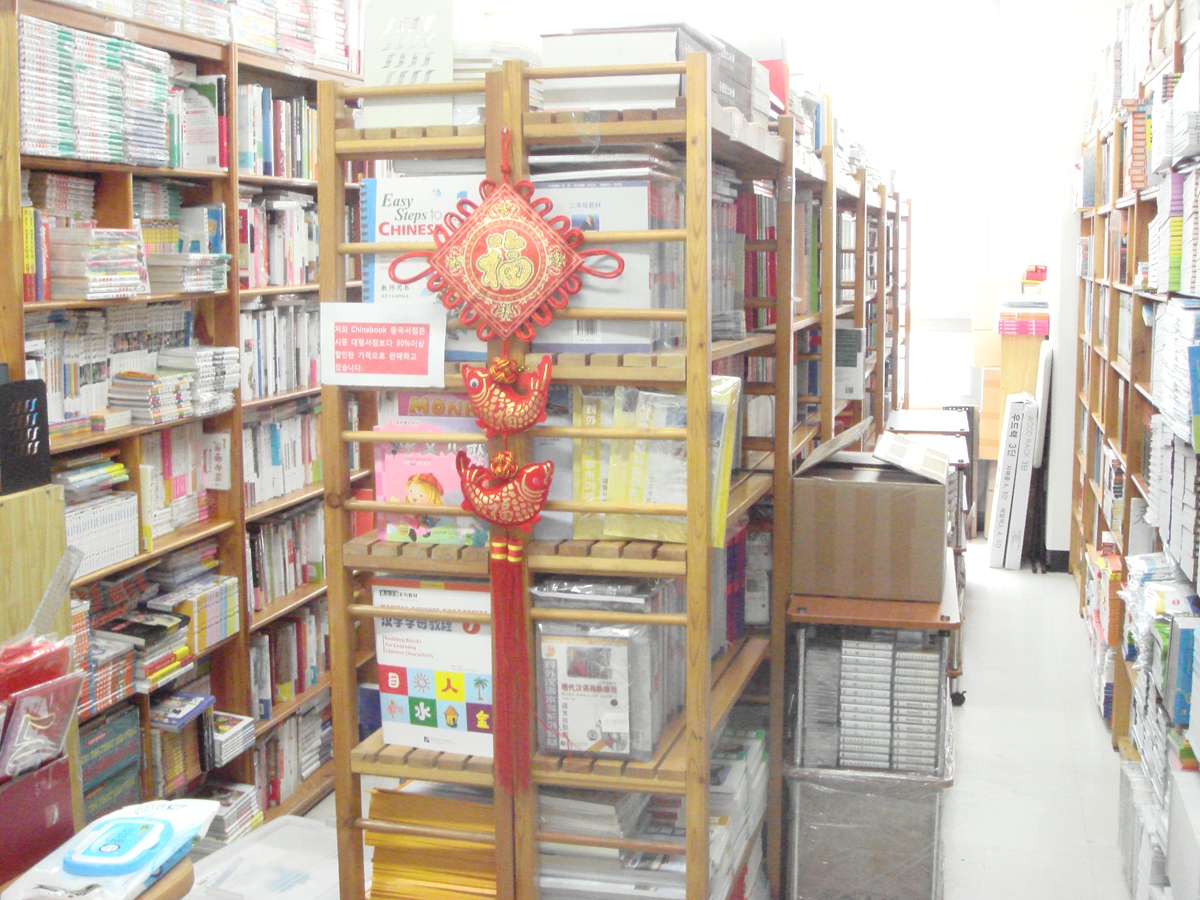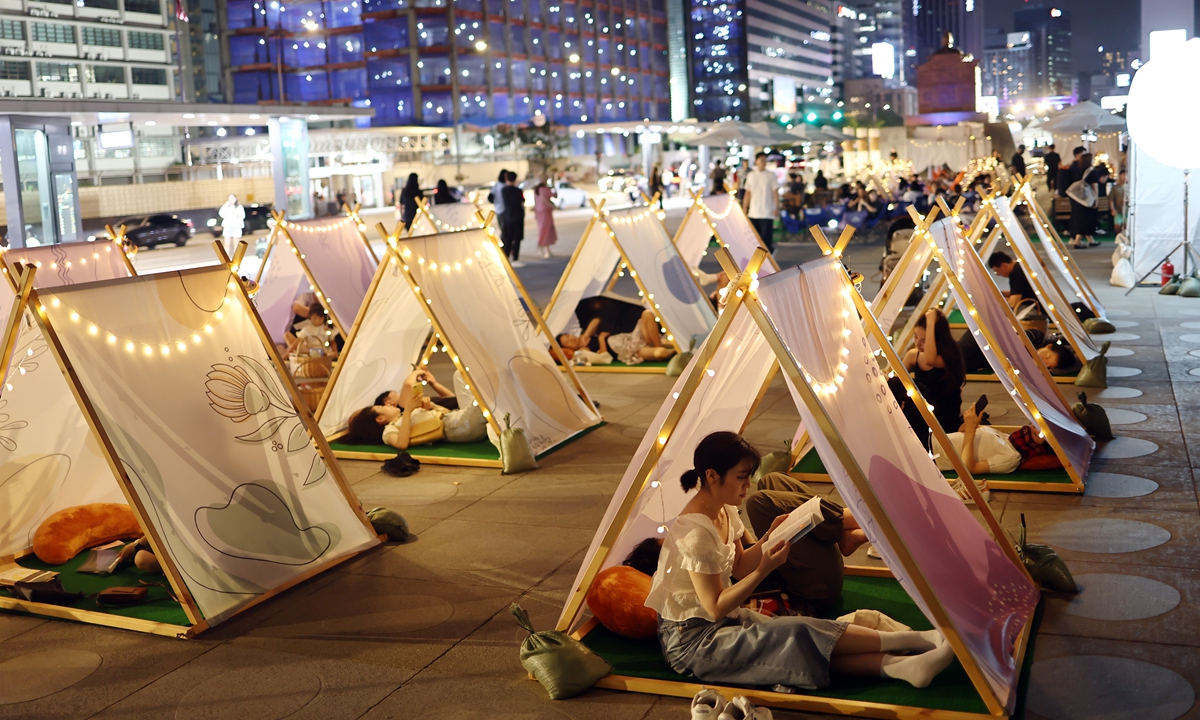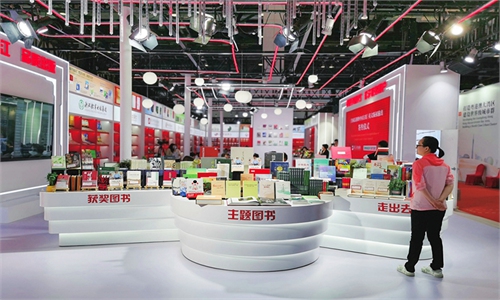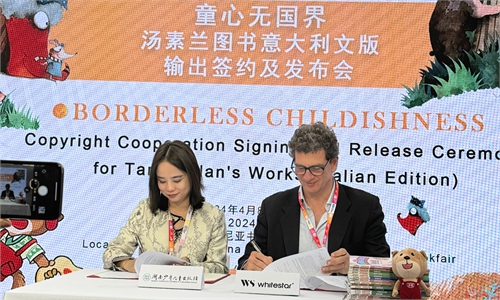
The China Book bookstore in Seoul, South Korea Photo: Courtesy of Han Geon-hee
South Koreans read books in an outdoor reading event in Seoul. Photo: VCG
The "China Book" in Seoul is not the grandest, but is arguably one of the most comprehensive bookstores in South Korea, stocking publications about China since it was established in 1996.
It covers a wide range of the "China book" genre, with offerings such as Chinese literature and Chinese economy. When describing how committed the shop is to numerous elements of Chinese culture, its owner Han Geon-hee joked that rumor had it he was a Chinese spy stationed in South Korea.
Having taken over "China Book" from his father in 2004, Han, who was a musician in a band at the time, found himself too busy to be "a spy." Running the store also allowed him to see how books can give rise to a cultural consensus among the people of China and South Korea.
'A consolation'
From Chinese cartoon books to literary classics, the literary diversity at "China Book" caters to a variety of readers aged 18 to 80 years old.
Han told the Global Times that much of his clientele includes teachers, foreigners curious about China, as well as Chinese language learners who are predominately local students. Since 2017, the number of Chinese language learners in South Korea has surged to more than 10.6 million people; the demographic accounts for around one-fifth of the country's total population of more than 51 million people.
"I've often heard South Korean customers conversing in store in Chinese, and discussing the difficulties of learning the language and sharing reference books," Han told the Global Times.
Han's sales-oriented bookshop has gradually been reshaped by people with similar interests gathering together to become a cultural salon. He has also discovered a niche of "Chinese contemporary literature" enthusiasts, keen on Chinese authors like Yu Hua.
He told the Global Times that books like Yu's To Live are top sellers. With China's fertility history as a background, Nobel-winning novelist Mo Yan's Red Sorghum has been popular among South Korean readers for more than a decade.
Although Yu's To Live is about the past, its realistic meaning remains current in South Korea. In 2023, a South Korean judge in Busan gifted a copy of the book to a homeless man. The move was seen by many netizens as a show of literature's humanistic virtue come to life.
"The reason why Yu's book can cater to both Chinese and South Korean readers is due to the two East Asian countries' similarities and distinctions in their cultural-social developments," cultural sociologist Chu Xin, told the Global Times.
Taking South Korean novelist and film director Lee Chang-dong as an example, Chu told the Global Times that the artistic tradition of borrowing ordinary people's stories to reflect social phenomena has been widely celebrated by both Chinese and South Korean artists.
"I hope China Book will continue to bring consolations to South Korean readers who truly love Chinese culture and vice versa," Han remarked.

Seek for collaboration
Han's passion for the Chinese publishing industry has grown along with his bourgeoning business. In 2019, he attended the Beijing Book Fair with his brother. The fair is a large-scale annual book event that provides collaboration opportunities for domestic and overseas publishers.
Han said that he was fascinated by many good-quality Chinese books at the event, and the experience was entirely different from his previous visits to China's bookshops.
"The fair is a good opportunity for me to meet publishers in China. And I have to say that the fair's book landscape is just like China's territory that is quite vast," he told the Global Times.
Including the publishing industry, cultural exchanges between China and South Korea have blossomed, especially since 2022, when the two countries celebrated the 30th anniversary of the establishment of diplomatic relations.
Including the Jiangxi Education Publishing House, a total of five Chinese publishers participated in a mutual translating project on China and South Korea's literature classics. In the same year, at least 200 kinds of Chinese books across different genres were also displayed at the Seoul International Book Fair.
"In history, China and South Korea share many ethical and philosophical consensus, and then developed down different paths. Reading each other's stories again can help us to build mutual trust and understanding," Han said.



